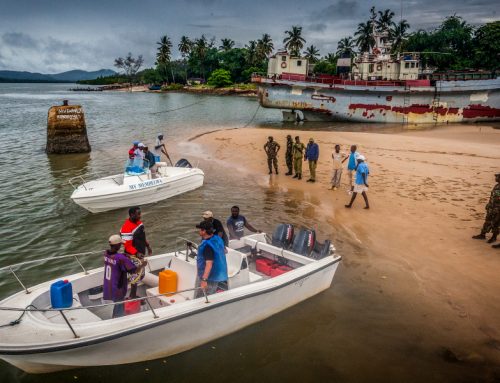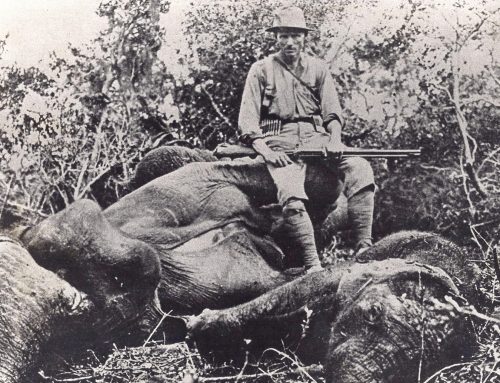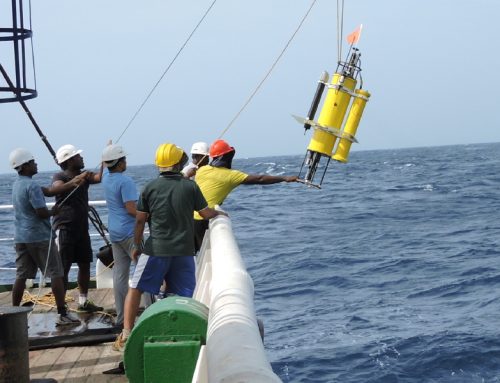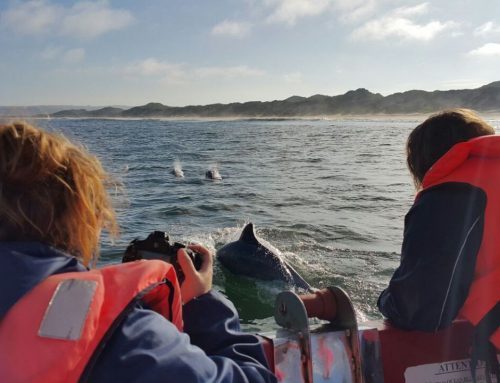Cape flowers for pleasure, profit, employment and the green economy
We need to look to the earth beneath our feet to see the riches of our land. This could not be more evident than in the smallest, richest floral kingdom in the world, the Cape Floristic Region (CFR), also known as the Cape Floral Kingdom.
The CFR is home to over 9000 indigenous plant species, broadly known as fynbos, in an area that covers 90 000 km2, mainly in the Western Cape, but also in parts of the Eastern Cape, as far as Port Elizabeth. Of the 9000 species, 6 000 are endemic to the CFR.
Industry statistics indicate that harvesting in the wild currently takes place over an area of about 200 000 hectares in the Western and Eastern Cape regions of the CFR, for the local and export market.
The wild fynbos export industry started approximately a century ago, when fynbos was picked for the funeral industry in Europe, particularly for the German market. Fynbos’ great advantage (especially the Everlastings, or Sewejaartjies) is that it lasts far longer than most flowers. Fynbos has since become popular in Europe for general floral bouquets.
To manage the industry sustainably, an independent NGO called the Flower Valley Conservation Trust, which partners with farmers, government and conservation organisations, launched a sustainable fynbos-harvesting programme in 2003. The programme takes place on 60 000 hectares of the 270 000 hectare Agulhas Plain, which includes privately- and state-owned land between Hermanus and the De Hoop Nature Reserve in the Western Cape.
“The programme shows that it is certainly possible to sustainably harvest fynbos in a commercially viable way. At the same time it creates businesses and jobs for people living in the surrounding rural communities,” says Flower Valley’s Conservation Director, Roger Bailey, who has been with the programme from its outset.
The plan now is to roll out the project across the entire CFR where harvesting in the wild occurs. To contribute to this, the WWF Nedbank Green Trust and the European Union are co-funding the roll out of this voluntary programme to three new fynbos-harvesting areas in the Boland, West Coast region and around Riversdale.
“The programme is voluntary and it is all about promoting the green economy. It increases the number of biodiversity stewards on private land and it fulfills the social responsibility need of decent green jobs,” explains Bailey whose love of fynbos developed when he was a child growing up in Bot River in the Overberg where his family would hike in the mountains.
From a young age he knew he wanted to work in the conservation field, and initially worked as a volunteer in the Bot River area, the botanical gardens in Villiersdorp in the Boland, the Kogelberg Nature Reserve and CapeNature.
“Fortunately for me, during this time, there was a PhD student from the United States doing a study on the spread of Argentine ants in the fynbos in the Kogelberg Nature Reserve, and I was employed as her research assistant,” says Bailey.
From there he moved on to the Agulhas National Park where he worked with private landowners within the reserve as a task assessor, graduating to senior project manager in the Working for Water Programme in the Park. He was responsible for overseeing the alien-clearing programme.
His next appointment was with the Flower Valley Conservation Trust where he has been ever since.
“Sound, holistic land management in the fynbos areas is a top priority for conservation intervention, and fortunately the government and many private landowners have identified it as such,” he explains.
“If we look at the Agulhas Plain, for example, there are close to 2500 plant species of which approximately 100 are endemic, at least 110 are in the Red Data Book and about 40 are unique vegetation types. Around 150 species from this region are harvested for the local and international flower trade. Accordingly, it is extremely important that we promote holistic land management practices, our programme’s Code of Best Practice for Wild Harvesters, a Vulnerability Index to guide species choice for bouquets, and training and skills development for harvesters.”
The Code of Best Practice for Wild Harvesters sets out how harvesters should pick fynbos in order to conserve the plant and surrounding vegetation. The stem should be cut at a certain length, and should be cut at a 45-degree angle. It’s also vital to leave seed stock in the veld i.e. too many flower heads should not be removed.
The Vulnerability Index advises what should and should not be picked for the market.
The Sustainable Harvesting Programme participates in ongoing research on fynbos, aimed at gaining a better understanding of how different species react to fynbos harvesting and other land-related activities. For example, recent research found that resprouters such as silver brunia (a species picked for the market) have a high mortality rate when 100% harvesting is allowed. It has been recommended that these species be harvested at between 25% and 50%, however, more research over a wider area is now needed to better understand the impact of harvesting on this and other species.
Another part of Bailey’s work is to coordinate the Agulhas Biodiversity Initiative’s (ABI) alien-clearing project. This is a landscape initiative operating across the Overberg to clear mainly pine, rooikrans, port jackson, myrtle and hakea. The ABI is currently working with nine land user groups across the Agulhas Plan, where it is partnering with conservancies, farmers’ associations and conservation agencies, all of whom are co-funding the project. Funding for the wages of the alien clearers is coming from the Department of Environmental Affairs, through their Land User Incentive Scheme.
Flower Valley, as the coordinator, is responsible for the ultimate report-back to the Department of Environmental Affairs.
To assist Bailey and lead the new expansion area, Bronwyn Botha, formerly a project manager with the Wilderness Foundation, joined the programme this year. The WWF Nedbank Green Trust is funding her salary.
Botha collaborates closely with a number of field monitors who work as fynbos harvesters, alien clearers and farm workers – in a project supported by the Global Environment Facility’s Small Grants Programme. They are using their new monitoring skills, acquired through training offered by the Sustainable Harvesting Programme, to collect information on fynbos trends, while spotting areas that may require some attention.
According to Botha, research on fynbos trends is essential to better equip fynbos harvesters and suppliers. “Through ongoing research, we can better understand many of the threats to fynbos – such as invasive alien plants and poor land management. This allows us to work positively with various stakeholders, to ultimately boost fynbos sustainability, and to improve the sustainable livelihoods within the project area.”
About the Flower Valley Conservation Trust
The Flower Valley Conservation Trust is an independent NGO founded in 1999, and based on Flower Valley Farm, just outside Gansbaai.
Lesley Richardson has been the Executive Director of the Flower Valley Conservation Trust since 2003. She has an MSc Degree in Community Health from the University of Stellenbosch and worked at WWF-SA for ten years.
The Trust works to ensure a fynbos-filled future, by promoting the sustainable harvesting of wild fynbos, and by coordinating a major alien-clearing project across the Agulhas Plain (called the Agulhas Biodiversity Initiative Alien Clearing Project).
The Trust also hosts an Early Childhood Development programme, and provides a safe learning environment for 20 two to six year olds at the Flower Valley Early Learning Centre, on Flower Valley Farm.
The Trust employs around 40 people – including Trust staff, farm staff and a harvesting team. The Trust was initially founded through funding support from an organisation in the United Kingdom called Fauna and Flora International, which remains an active partner today.
For more information go to www.flowervalley.org.za or visit its Facebook page: Flower Valley Conservation Trust.
About the Sustainable Harvesting Programme
The Sustainable Harvesting Programme is a voluntary programme that addresses ecological, social and ethical sustainable harvesting of wild fynbos. The aim is to ensure the long-term sustainability of fynbos landscapes and livelihoods.
The process to become a member of the programme works as follows:
If a farmer, landowner or fynbos harvester is interested in joining the programme, they would contact Flower Valley Conservation Trust. A meeting would be organised, through which our extension staff would visit the farm in question if it is in one of our project areas, to undertake an initial field assessment and to better understand the needs of the farmer, landowner or fynbos harvester.
The programme is voluntary, and, as such, the harvester would sign a statement of commitment, which would commit him or her to working towards best practice environmental principles, and social and labour best practice principles (as set out in the Flower Valley Code of Best Practice for Wild Harvesters).
This is something markets are increasingly asking of their suppliers, and this is the only programme that provides it in the fynbos industry. An improvement plan is provided to the landowners and harvesters, to assist and offer support to them, as they start the journey towards best practice principles and sustainability.
Farmers, landowners and harvesters would be able to undertake self-assessments, to check their own progress. Capacity building is offered to harvesters, to train them in how to pick sustainably – as part of the programme.
Flower Valley Conservation Trust is also working with the Sustainability Initiative of South Africa (SIZA), which is currently developing environmental guidelines for the agricultural industry at large. Social and labour guidelines have already been developed. The idea is to minimise the number of audits for landowners and harvesters should they want official accreditation.
In order to determine the impact of harvesting on the veld – and to assist in ensuring that threatened fynbos species aren’t picked by accident, the programme works to collect, validate and disseminate field harvesting data – a key way for markets to best see that their suppliers are not impacting on the veld in a negative way.
For more information contact:
Heather D’Alton
Communications Manager, Flower Valley Conservation Trust
Email: heather@flowervalley.co.za Tel. 028 425 2218
Cell: 076 627 1576




